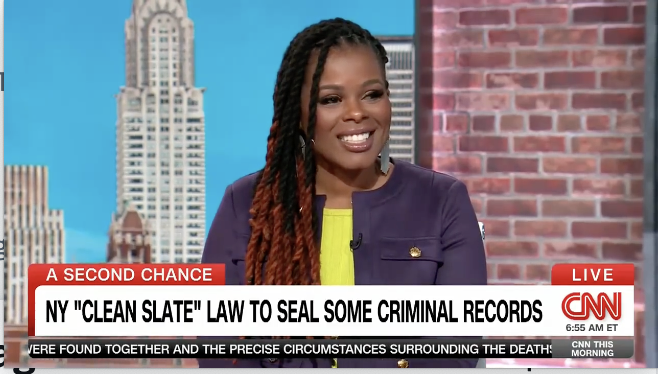LEXINGTON-HERALD LEADER
Forward Justice Action Network (FJAN), in partnership with Appalshop, has joined forces to bring these powerful stories to the forefront of this 2025 legislative session. Through storytelling and advocacy, they ensure that the narratives of those seeking redemption are heard and actively shaping policy conversations in Frankfort.
LEX18 KENTUCKY
The article highlights efforts in Kentucky to implement automatic expungement, making it easier for eligible individuals to clear their records. Selena Coomer, a longtime advocate in recovery, shares how her misdemeanor record created barriers to becoming a nurse. Organizations like Dream.org and The Clean Slate Initiative are pushing for legislation to remove costly and complex expungement requirements. Advocates hope to pass a bill this session to help over 500,000 eligible Kentuckians.
THE TRIBE
A diverse coalition of social justice organizations will travel to Springfield to advocate for the Clean Slate Act, which would help millions of Illinois residents hindered by past arrest and conviction records. The coalition hopes that Illinois lawmakers will pass the measure during the 104th General Assembly before the spring session ends.
BOSTON GLOBE
A coalition of lawmakers, advocacy groups, and business leaders are backing legislation to automatically seal certain criminal records in an effort to help people with years-old convictions more easily access jobs, housing, and education.
SPOKESMAN RECORDER
With the launch of the Clean Slate law, the state has taken a monumental step toward fairness, equity, and second chances. This groundbreaking legislation will impact approximately 500,000 Minnesotans, granting them the opportunity to move forward without being tethered to past mistakes.
LOUISVILLE PUBLIC MEDIA
Many Kentuckians with criminal records are eligible to clear them but haven’t. Local advocates and organizations want state lawmakers to make the process easier.
STAR TRIBUNE
Denise Johnson writes that Minnesota's new clean-slate law is as economically sound as it is ethical. Minnesota employers will soon be able to tap into a larger talent pool, and those who have already been held accountable for low-level or nonviolent offenses will have access to more opportunities and higher wages.
CSI
The Clean Slate Initiative advocates for the new administration to prioritize federal Clean Slate legislation within its first 100 days. The proposed policy aims to establish an automated process for sealing eligible federal records, thereby enhancing access to employment, housing, and education for millions of Americans with low-level convictions.
ROUTE FIFTY
Twelve states now have fully automatic criminal records clearance policies, with more set to follow. Artificial intelligence and other tech can help speed up what has previously been an onerous and expensive process.
CAPITAL B NEWS
April 11th is Clean Slate Day in Michigan, and for Elvina Smith, it’s a day of profound significance.
Elvina's story highlights the power of Michigan's Clean Slate automated record sealing policies, which have provided a pathway for her to move forward with a true second chance.
Our CEO, Sheena Meade, stresses the importance of continuing the fight for Clean Slate legislation.
CBS MORNINGS
Each weekday morning, "CBS Mornings" brings viewers the latest breaking news, smart conversation, and in-depth feature reporting — and on October 23, they invited our CEO, Sheena Meade, to join the broadcast.
USA TODAY
In recognition of Second Chance Month, we ask: should everyone get a chance at a clean slate? Sheena Meade, CEO of the Clean Slate Initiative, an organization working to get all 50 states to offer automatic record clearance, joins The Excerpt to discuss the ramifications of living with a criminal record.
Nonprofit Quarterly
This organization works to combat the barriers that formerly incarcerated people face by advocating for policies that automatically clear arrest and conviction records for eligible people. Automatic record clearance has proven to be helpful for many formerly incarcerated people because many do not know they are eligible to apply for expungement. And if they know they are eligible to have their record cleared, the time and resources to do so may prove to be cumbersome.
Forbes
In these extremely politically polarized times, one of the rare issues that often garners bipartisan support is criminal justice reform. Twelve states have passed “clean slate” laws that automatically clear criminal records nationwide for people who have completed their sentences and remained crime-free. Leading the effort to pass more such laws is The Clean Slate Initiative’s Sheena Meade.
The New York Times
New York Will Give a ‘Clean Slate’ to Formerly Incarcerated People
Gov. Kathy Hochul signed legislation that could make as many as two million people eligible to have their criminal records sealed.




















